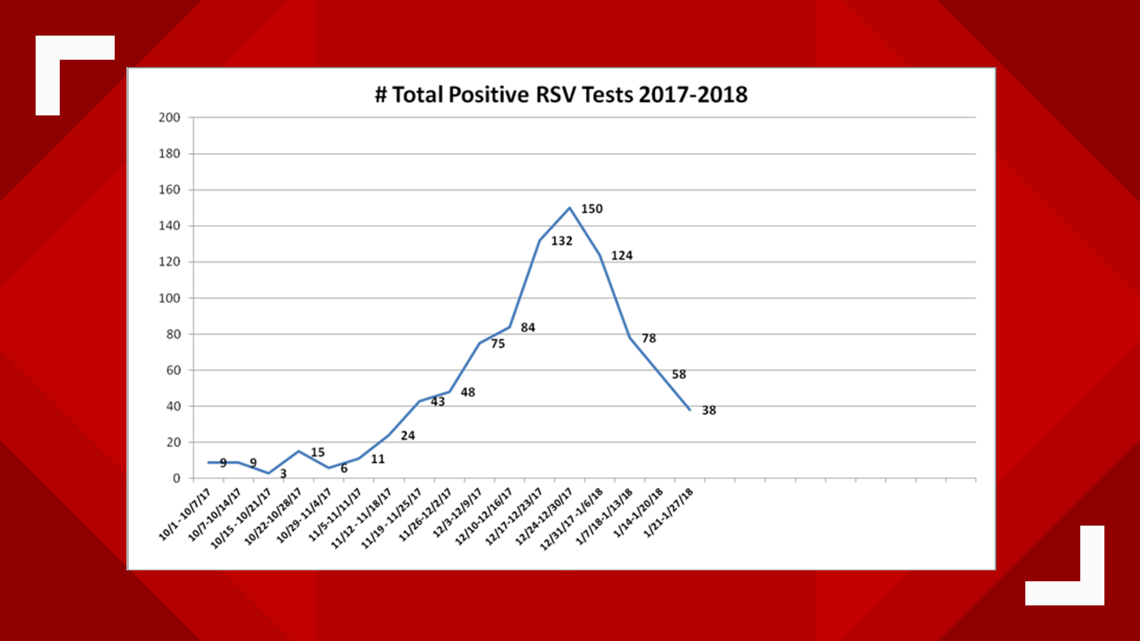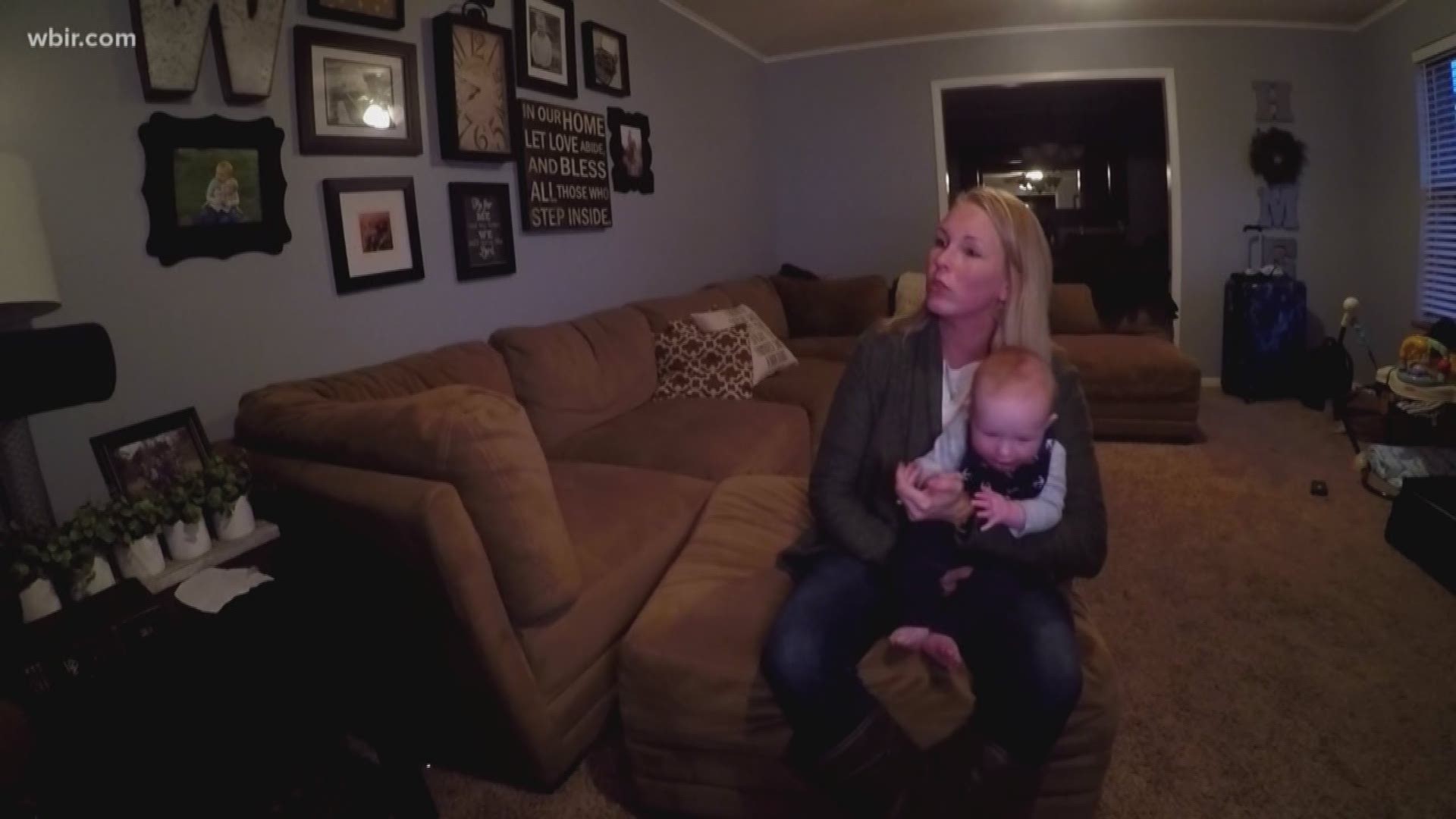Doctors and the Centers for Disease Control are telling parents to be prepared for a common respiratory virus as it begins its seasonal rise.
Respiratory Syncytial Virus, or RSV, commonly infects young children and adults alike around this time of year and comes with a range of cold-like symptoms such as a runny nose, coughing, sneezing, and high fever.
"With RSV it really starts by looking like cold like symptoms," said Mary Coleman, assistant nurse manager at East Tennessee Children's Hospital. "If you notice that they start breathing much faster than normal, if they seem like they're choking anything like that...if they start to look like they're dehydrated...all those reasons are reasons that you should bring them in."
For most, the CDC says the infections go away on their own in about a week or two. However, the virus can sometimes cause more serious infections that require professional medical care -- particularly for young infants and older adults.
In East Tennessee, more and more children are testing positive for RSV as we enter January.
The East Tennessee Children's Hospital says it has recorded more than 380 positive tests for RSV so far this season -- which began rising in mid-November.
In 2017-2018, RSV cases peaked at ETCH in early January and began declining as the month went on.


Doctors say parents shouldn't be immediately alarmed if their child shows symptoms -- as the CDC says RSV is so common that most every child will contract it by their second birthday.
However, the CDC says roughly one to two percent of children under 6 months old may need to be hospitalized if they contract RSV -- particularly preemies and those with other underlying medical conditions.
Jenna Wilson's six month old son Boone was diagnosed with RSV just before a planned family vacation in December. The family postponed their trip and took Boone to ETCH.
"I was pretty devastated when we found out he had RSV," said Wilson. "I think some people will just do a quick google search online and it sounds like a common cold but to babies, it can be life or death."
Most healthy children with RSV will just need plenty of fluids and rest, but the CDC says parents should be on the lookout for more serious complications such as breathing difficulties, severe coughing, and trouble eating/drinking -- as the virus can sometimes cause more severe respiratory infections such as bronchiolitis and pneumonia.
The CDC says people should do the following if they experience cold-like symptoms to prevent the spread of RSV.
- Cover your coughs and sneezes with a tissue or your upper shirt sleeve, not your hands
- Wash your hands often with soap and water for 20 seconds
- Avoid close contact, such as kissing, shaking hands, and sharing cups and eating utensils, with others
The CDC says parents of children that would be at higher risk of developing severe RSV should avoid close contact with sick people and limit the time they spend in childcare centers or other potentially contagious settings until infection season passes.

